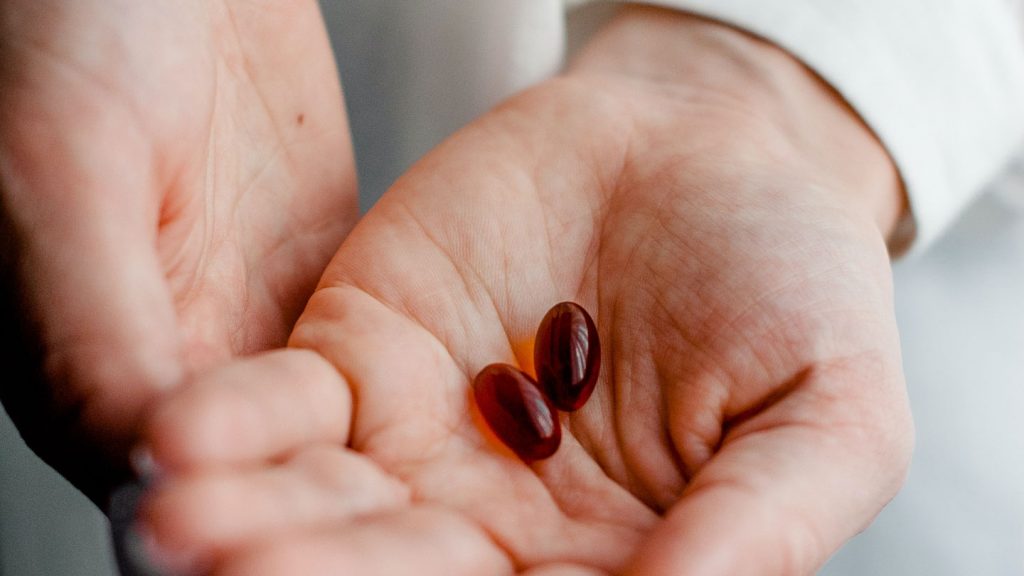You will find endless vitamins that people swear by on social media — turmeric tablets, maca pills, goji berry juice powder, spirulina, kale powder, you name it. It’s difficult to tell the good supplements from the bad, especially with so many gimmicks on the market.
So, we asked four health experts which nutrients they currently use and prescribe, as well as when you would actually need them. So, here are the best health nutritional supplements you will actually need.
#1 Fish Oil
Long-chain omega 3 fats are one of the primary nutrients that we don’t get enough of. According to research, omega 3 fatty acids are important for a healthy heart and brain, and they also help reduce inflammation in the body.
Eicosapentaenoic acid (EPA) and docosahexaenoic acid (DHA) are two Omega 3 fatty acids present in fish oil (DHA). Since we cannot develop these in our bodies, we must obtain them from our diet or supplements. Choose a supplement that contains a high amount of EPA and DHA, as well as purity and sustainability certifications.
#2 Probiotics
Probiotics are “healthy” bacteria that line our gastrointestinal tracts and help our bodies digest nutrients, and combat infection. I take probiotics to keep my gut healthy.
Scientific research is mounting that the wellbeing of our stomach has a significant impact on our immune system. Taking a probiotic regularly can be a simple way to keep the stomach and immune system safe.
You have the choice of taking it as a capsule or a powder. If you’ve just finished a course of antibiotics, adding probiotics to your diet will help your gut heal. For getting a clear conception you can look for “top nutrition blogs”.
#3 Vitamin D
Vitamin D is vital for healthy bones, muscles, and overall wellbeing.
Vitamin D is a fat-soluble vitamin that is one of the 24 micronutrients that humans use to survive. Supplementation is recommended if adequate vitamin D levels are not available in the body due to the rising vitamin D deficiency rates and the consequences.
Over the summer, most of us probably get ample vitamin D from the sun (you only need about 15-20 minutes of exposure). However, some of us can benefit from a vitamin D supplement during the winter if we spend a lot of time indoors.
#4 Protein
People can get enough protein from their diet (available in both plant-based foods and meat). However, some people, such as athletes or those who have a vigorous exercise schedule, can benefit from protein supplementation.
Protein is the king of nutrients when it comes to muscle gain and weight loss. Protein has been shown to aid weight loss by increasing metabolism and decreasing hunger.
Although whey protein is best, plant-based proteins are also highly efficient if you have lactose intolerance.
Final Thoughts
Vitamin supplements cannot be used as a replacement for a healthy diet. If you do take them, make sure you don’t take more than the recommended daily amount. Choosing a healthy health supplement should be a well-informed and well-considered choice.


